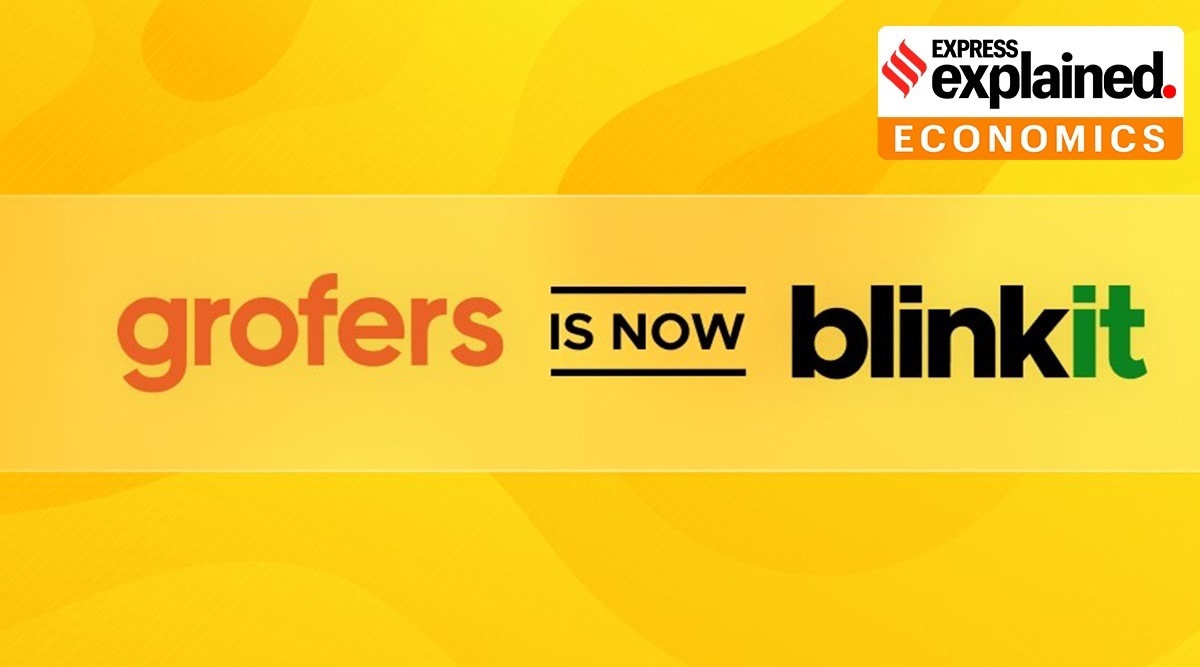Explained: The q-commerce model, how your order is delivered in minutes
After losing significant market share to BigBasket over the years, Grofers decided to pivot its business model from conventional grocer model to the quick-commerce model — where goods are delivered in a shorter period of time.
 Grofers has rebranded itself to ‘Blinkit’ (Twitter/Blinkit)
Grofers has rebranded itself to ‘Blinkit’ (Twitter/Blinkit)Online grocer Grofers has rebranded itself “Blinkit”, in line with its new focus on “quick commerce”, which essentially involves delivering customer orders much faster than it does currently.
“We learnt a lot as Grofers, and all our learnings, our team, and our infrastructure is being repurposed to pivot to something with staggering product-market fit — quick commerce. Today, we are surging ahead as a new company, and we have a new mission statement — “instant commerce indistinguishable from magic”.
“And we will no longer be doing this as Grofers — we will be doing it as Blinkit,” the company’s CEO Albinder Dhindsa wrote in a blog post.
After losing significant market share to BigBasket over the years, Softbank-backed Grofers decided to change its business model from the conventional grocer model to the quick-commerce model, in which goods are delivered in a much shorter time.
Several other online delivery platforms too have entered this high-volume business. Dhindsa wrote in the blog post that Grofers is processing more than a million orders every week across 12 cities in India.
So how does the q-commerce model work?
The supply chain disruptions triggered by the Covid-19 pandemic led to the emergence of a new sub-vertical in the online grocery segment — quick commerce, or q-commerce — the unique selling proposition of which was the promise of delivery within 10-30 minutes of ordering.
The focus of most of these ventures is on setting up micro-warehouses located closer to the point of delivery, and of restricting stocks at these “dark stores” to a focussed set of under 2,000 high-demand items, as against the traditional formula of well-stocked, large-format warehouses that are located on the outskirts of towns and cities.
Who are the other players in this segment?
New players, including Mumbai-based Zepto, have waded into a space where industry heavyweights — Grofers, Swiggy, and Dunzo, alongside Tata Group-owned Big Basket that will be extended to the Tata Neu superapp — have either launched or are contemplating full-scale operations.
Earlier this month, food-tech platform Swiggy announced it will make a $700 million investment into its quick-commerce vertical Instamart. Swiggy said that by January 2022, it will make deliveries in 15 minutes through a network of dark stores located very close to the bulk of its customers.
Newsletter | Click to get the day’s best explainers in your inbox
- 01
- 02
- 03
- 04
- 05







































